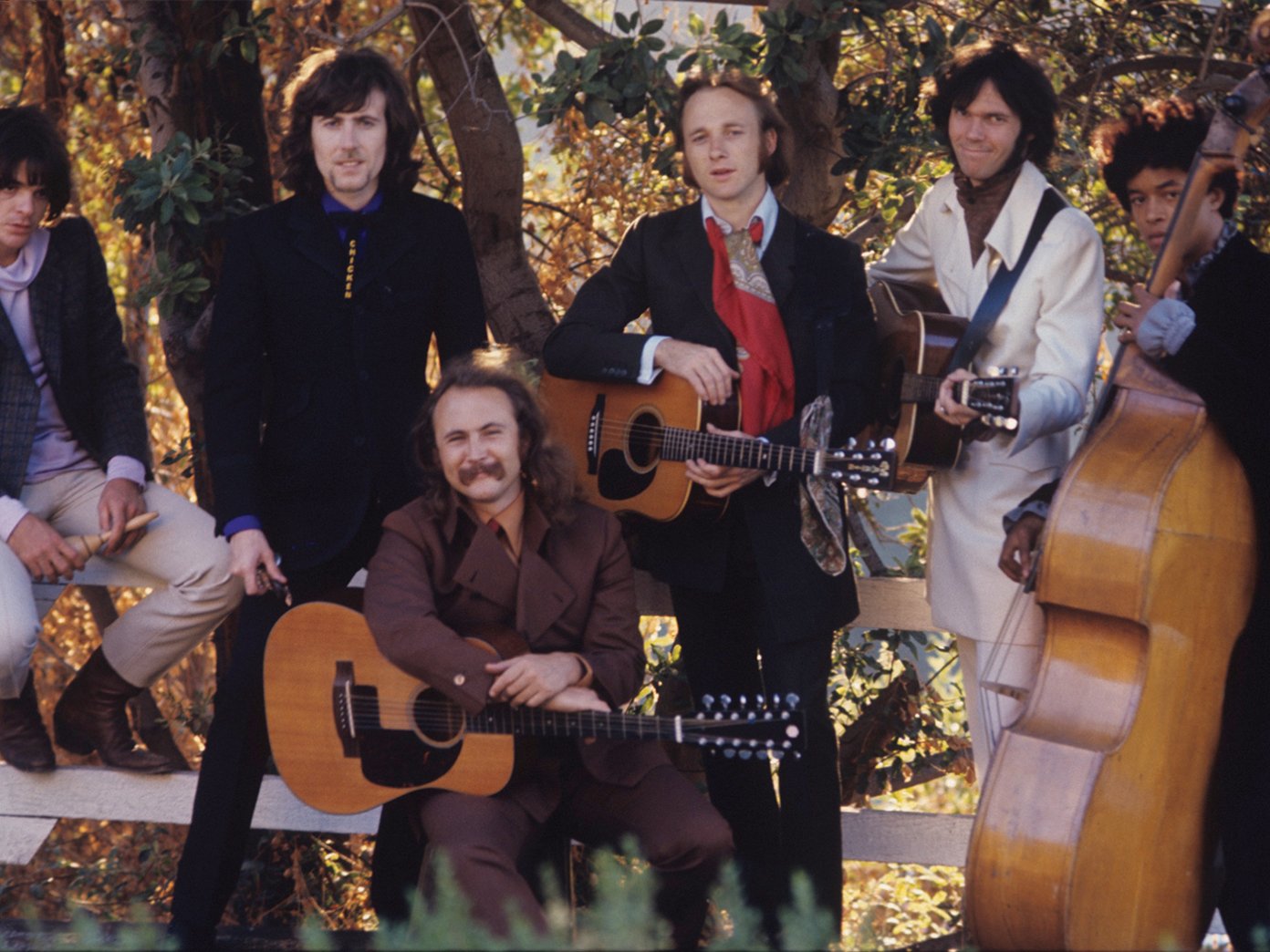The legendary supergroup Crosby, Stills, Nash and Young has left an indelible mark on the landscape of rock music with their harmonious melodies and thought-provoking lyrics. Their 1970 album, "Déjà Vu," stands as a testament to their creative synergy and artistic prowess, capturing the essence of a generation grappling with change and uncertainty. This iconic record not only showcases their individual talents but also highlights the power of collaboration, creating a seamless blend of folk, rock, and introspective storytelling.
As we delve into the world of Crosby, Stills, Nash and Young's "Déjà Vu," we'll uncover the stories behind the music, the personal dynamics of the group, and the cultural significance of the album. With tracks that resonate deeply with listeners even today, the album serves as a reflection of the hopes and struggles of the era. The interplay of voices and instruments creates an atmosphere that feels both familiar and haunting, evoking a sense of nostalgia that is hard to shake off.
In this exploration, we will also examine how "Déjà Vu" continues to influence contemporary artists and the music industry as a whole. From its bold political statements to its introspective ballads, the album remains a cornerstone of American music history. Join us on this journey as we uncover the layers of meaning behind Crosby, Stills, Nash and Young's "Déjà Vu," and appreciate the timeless quality of their work.
What is the Background of Crosby, Stills, Nash and Young?
Crosby, Stills, Nash and Young is a supergroup formed in 1969, consisting of David Crosby, Stephen Stills, Graham Nash, and Neil Young. Each member brought their unique musical background, having previously achieved success in other bands. Their collaboration marked a significant moment in music history, characterized by rich harmonies and intricate songwriting.
Who are the Members of Crosby, Stills, Nash and Young?
| Name | Birth Date | Instrument | Notable Contributions |
|---|---|---|---|
| David Crosby | August 14, 1941 | Guitar, Vocals | Co-founder of The Byrds; known for his distinctive voice and songwriting |
| Stephen Stills | January 3, 1945 | Guitar, Keyboards, Vocals | Co-founder of Buffalo Springfield; multi-instrumentalist and producer |
| Graham Nash | February 2, 1942 | Guitar, Vocals | Former member of The Hollies; known for his harmonies and political activism |
| Neil Young | November 12, 1945 | Guitar, Vocals | Co-founder of Buffalo Springfield; influential solo artist with a distinctive style |
What Themes are Explored in Déjà Vu?
The album "Déjà Vu" dives deep into various themes, reflecting personal and societal struggles. Key themes include:
- Love and Relationships: Many songs explore the complexities of love, loss, and longing.
- Social and Political Commentary: The album addresses the turbulent socio-political climate of the late 1960s and early 1970s.
- Self-Reflection: Several tracks encourage introspection and personal growth.
- Nostalgia: The feeling of déjà vu is prevalent throughout the album, prompting listeners to reflect on their own experiences.
Which Songs Stand Out on the Déjà Vu Album?
"Déjà Vu" features several standout tracks that have become classics:
- Teach Your Children: A heartfelt ballad about passing wisdom to the next generation.
- Our House: A nostalgic tribute to domestic bliss and love.
- Woodstock: An anthem celebrating the spirit of the iconic festival.
- Almost Cut My Hair: A personal reflection on identity and societal expectations.
How Did Déjà Vu Impact Music and Culture?
The release of "Déjà Vu" had a significant impact on music and culture. It provided a voice to the counterculture movement and resonated with the youth of the time. The album's themes of peace, love, and social justice became emblematic of the era.
What is the Legacy of Crosby, Stills, Nash and Young's Déjà Vu?
The legacy of "Déjà Vu" extends far beyond its initial release. The album has influenced countless artists and genres, cementing its place in music history. Its songs continue to be covered and celebrated, demonstrating the timeless quality of Crosby, Stills, Nash and Young's work.
How Has Déjà Vu Affected Contemporary Artists?
Many contemporary artists cite "Déjà Vu" as a major influence on their music. The album's blend of harmonies, thoughtful lyrics, and acoustic instrumentation can be seen in the works of modern folk and rock musicians. Its enduring relevance speaks to the universal themes it explores, making it a source of inspiration for new generations of artists.
Why Should You Listen to Déjà Vu Today?
Listening to "Déjà Vu" today offers a unique musical experience that transcends time. The album serves as a reminder of the power of collaboration and the importance of addressing social issues through art. Its melodies and messages continue to resonate, making it a worthwhile addition to any music lover's collection.
In conclusion, Crosby, Stills, Nash and Young's "Déjà Vu" remains a cornerstone of rock music, capturing the spirit of a generation while continuing to inspire artists and listeners alike. The timeless quality of the album ensures that its echoes will be felt for years to come.
You Might Also Like
Discovering LongHorn Steakhouse In Waldorf, MD: A Culinary AdventureTantalizing Tuesdays: Unveiling Restaurant Specials That Delight
Unveiling The Lives Of Maria Taylor And Rodney Blackstock
Transforming Into Jean Grey: The Ultimate Cosplay Guide
Kevin Costner: The Rumors Of His Passing Explained
Article Recommendations
- Peachykai
- Gloria Borger Illness
- Tom Hughes Partner
- Tim Mcgraw Diddy
- Ground Cloudio
- Death Of Will Smith
- Natasha Nice Weight Loss
- Who Is Calvin Johnsons Wife
- Patricia Heaton
- David Hefner
:format(jpeg):mode_rgb():quality(90)/discogs-images/R-626503-1381173376-2720.jpeg.jpg)

